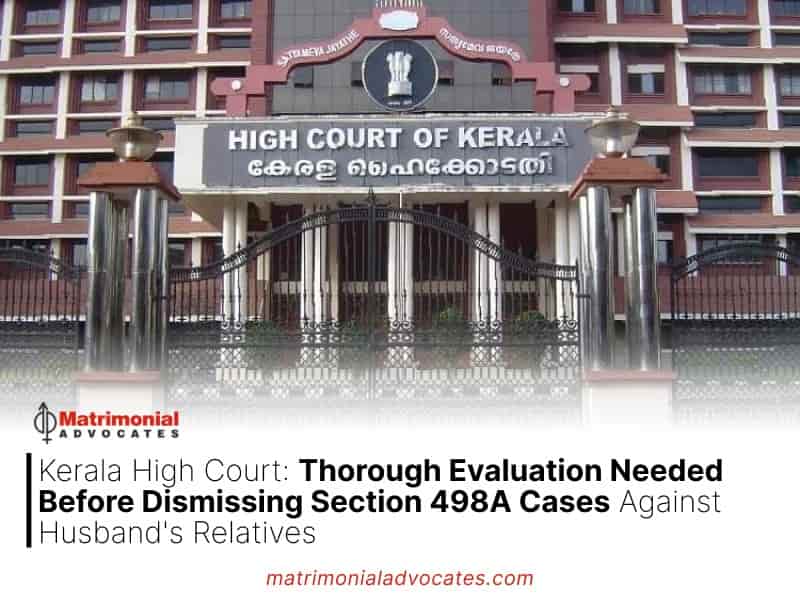
The Court said that while sweeping allegations against the husband’s in-laws will not stand, such allegations must be examined on a case-to-case basis rather than viewing them as false as a thumb rule.
The Kerala High Court recently observed that broad allegations of cruelty by a married woman against her in-laws do not automatically establish criminal liability under Section 498A of the Indian Penal Code (IPC). However, such claims should not be dismissed outright as a matter of routine [V Karthyayani v State of Kerala & Anr].
The Court emphasized the need for a case-by-case assessment of Section 498A matters, considering their unique facts and circumstances.
Justice A. Badharudeen made these observations while refusing to quash criminal proceedings under Section 498A (cruelty to a married woman) against the relatives of a married woman’s estranged husband.
The Court acknowledged a common trend of involving the relatives of estranged husbands in Section 498A cases through broad and generalized allegations of cruelty.
The judge further pointed out that such vague and sweeping claims are inadequate to support a Section 498A case. In these situations, the High Court has the power to quash the case before it reaches trial.
However, when the allegations against the accused husband’s relatives are specific, the case must proceed to trial, and the High Court cannot intervene to dismiss the proceedings at the preliminary stage.
“It is noticed that the relatives of the husband being roped into prosecution alleging commission of offence under Section 498A of the IPC on the basis of general allegations without specifying the over acts with certainty. At the same time, it is not possible to lay down a ratio that allegations against the relatives of the husband generally to be viewed as false as a thumb rule and to drop proceedings against them, without addressing the allegations. In fact, the allegations should be evaluated in a case to case basis,” the Court held.
Not possible to lay down a ratio that allegations against the relatives of the husband generally to be viewed as false as a thumb rule.
Kerala High Court
The case before the Court arose from a matrimonial dispute between a couple married in 2005.
Following this, the wife filed a complaint of cruelty against her husband and in-laws.
She accused her husband of physically assaulting her while intoxicated upon his return from his job in the Gulf. The wife also alleged that her mother-in-law and brother-in-law tried to force her out of the house built by her husband. Furthermore, she claimed that her husband pressured her to transfer the ownership of the house to his mother.
The dispute intensified when the husband transferred the property to his mother’s name before returning to the Gulf. The woman stated that she was only able to stay in the house with their child due to the intervention of the State police’s Vanitha Cell (women’s cell).
Later, the in-laws approached the High Court to have the case against them quashed, arguing that the allegations were vague and lacked specific details.
However, the Court disagreed, finding the allegations against the accused in-laws to be specific and detailed. It ruled that such claims could not be dismissed simply because they involved the husband’s relatives, and concluded that a prima facie case existed against the in-laws, necessitating a trial.
“Where the allegations are specific against the relatives of the accused, trial is necessary, and quashment prayer would necessarily fail,” it said.
Consequently, the Court dismissed the plea filed by the woman’s in-laws and directed them to face trial.





